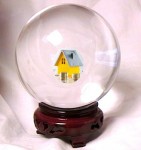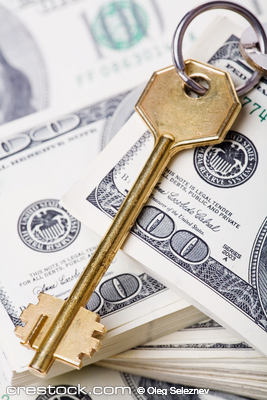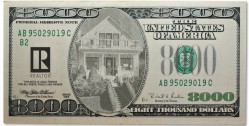

I know, I know, not the most inspiring title but seriously, when we look at market statistics in today’s ecnomy not that bad is pretty darn good! Read on to find out more!

This past Friday, President Obama signed into law H.R. 3548. This bill, at it’s heart a bill to extend unemployment  benefits {which, by the way, is being completely overlooked as the critical step it was to help the unemployed workers in this country, but that’s a topic foranother day(see, I’m overlooking it too!)} contained a roundly supported amendment to Extend and Expand the First Time Home Buyer Tax Credit that was set to expire this month. Unless you were hiding under a rock, by now you’ve no doubt heard countless talking heads telling you that this bill will either (A) Save the US Economy or (B) Leadthe US Economyinto a head on Collision with the ever growing Mountain of National Debt.
benefits {which, by the way, is being completely overlooked as the critical step it was to help the unemployed workers in this country, but that’s a topic foranother day(see, I’m overlooking it too!)} contained a roundly supported amendment to Extend and Expand the First Time Home Buyer Tax Credit that was set to expire this month. Unless you were hiding under a rock, by now you’ve no doubt heard countless talking heads telling you that this bill will either (A) Save the US Economy or (B) Leadthe US Economyinto a head on Collision with the ever growing Mountain of National Debt.
Well, if you were looking for someone to supportChoice (B), you should probably look elsewhere. But if you were looking for someone to explain just why this bill is critical to the recovery of the nation’s housing market and just may save our entire economy, then keep on reading!

 With aquickand resounding “Yes” vote, the House today passed HR3548, extending and expanding the Home Buyer Tax Credit! All we need now is forPresidentObama to sign the bill into law!
With aquickand resounding “Yes” vote, the House today passed HR3548, extending and expanding the Home Buyer Tax Credit! All we need now is forPresidentObama to sign the bill into law!

 The Senate voted today 98-0 to pass the HR 3548. HR 3548 is a bill that extendsunemploymentbenefits for an additional 20 weeks and contains an amendment that extends the existing $8,000 First Time Buyer Tax Credit and adding a tax credit for Move Up buyers!
The Senate voted today 98-0 to pass the HR 3548. HR 3548 is a bill that extendsunemploymentbenefits for an additional 20 weeks and contains an amendment that extends the existing $8,000 First Time Buyer Tax Credit and adding a tax credit for Move Up buyers!
Fees. It’s an interesting word and many people don’t know just how many fees are involved in a real estate transaction. Lender fees, title fees, inspection fees, notary fees, administrative fees, recording fees, if you’ve ever looked at a settlement sheet you’d be amazed at just how many there are. Why so many?
people don’t know just how many fees are involved in a real estate transaction. Lender fees, title fees, inspection fees, notary fees, administrative fees, recording fees, if you’ve ever looked at a settlement sheet you’d be amazed at just how many there are. Why so many?

Here is the headline from the AP Storythat ran yesterday “Senators agree to extend homebuyer tax credit”. Look spretty good, doesn’t it? Reading that, you would think we were in the clear, tax credits for everyone! Well, I hate to  rain on everyone’s parade, but we still have a long way to go.
rain on everyone’s parade, but we still have a long way to go.
Think of this process like looking at the moon through a telescope, it’s there, you can see every detail, you almost feel like you can reach out and touch it……. yet it is still thousands of miles away.
detail, you almost feel like you can reach out and touch it……. yet it is still thousands of miles away.

 According to a quick release from The National Association of Realtors today, the Senate is voting on an amendment to Extend Unemployment Insurance Benefits. In this bill, there is an amendment titled “Dodd-Lieberman-Isakson Amendment to Extend and Expand the $8,000 First Time Homebuyer Tax Credit”.
According to a quick release from The National Association of Realtors today, the Senate is voting on an amendment to Extend Unemployment Insurance Benefits. In this bill, there is an amendment titled “Dodd-Lieberman-Isakson Amendment to Extend and Expand the $8,000 First Time Homebuyer Tax Credit”.

 I saw an article posted on Rismedia the other day (http://rismedia.com/2009-10-15/8000-tax-credits-hoops-frustrate-house-hunters/) that was picked up from the Orlando Sentinel. The reporter (Mary Shanklin) titled the article “$8,000 Tax Credit’s Hoops Frustrate House Hunters”.She wrote a nice article about the challenges some people are facing in today’s market, concise and well written. In reality, the challenges she outlinedhave nothing to do with the tax credit. Let me give you theexamples used,summarizedfrom the article:
I saw an article posted on Rismedia the other day (http://rismedia.com/2009-10-15/8000-tax-credits-hoops-frustrate-house-hunters/) that was picked up from the Orlando Sentinel. The reporter (Mary Shanklin) titled the article “$8,000 Tax Credit’s Hoops Frustrate House Hunters”.She wrote a nice article about the challenges some people are facing in today’s market, concise and well written. In reality, the challenges she outlinedhave nothing to do with the tax credit. Let me give you theexamples used,summarizedfrom the article:

T he 99 Cent effect, maybe you’ve heard of it, maybe not, but did you ever wonder why prices end in 99? Turns out there is a proven psychological effect (dating all the way back to 1800’s) with prices that end in 9. Researchers at the Rutgers School of Business found that prices ending in .99 communicate low price to consumers and consumers are then more likely to buy.
he 99 Cent effect, maybe you’ve heard of it, maybe not, but did you ever wonder why prices end in 99? Turns out there is a proven psychological effect (dating all the way back to 1800’s) with prices that end in 9. Researchers at the Rutgers School of Business found that prices ending in .99 communicate low price to consumers and consumers are then more likely to buy.